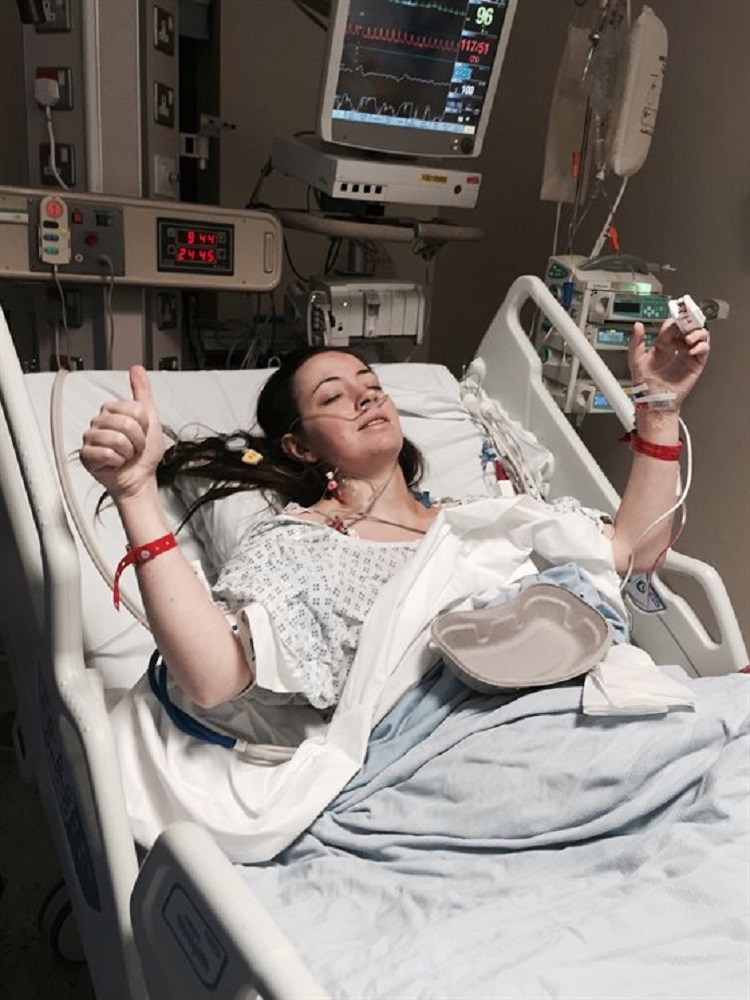Two years ago I contracted sepsis while in hospital being treated for a kidney infection and nearly died. It was a pivotal moment in my life, solidifying my desire to become a nurse. No more doubts, this was what I wanted to do. I even applied for the access to nursing course from my hospital bed.
My story begins when I was transferred from one hospital to another for my treatment and around this time my PIC (peripherally inserted central catheter) line got infected. Within a week I started to hallucinate, I had no idea where I was, and my temperature was 40.1C. The last thing I remember until I got better was waiting in a theatre thinking I was going to die.
I was panicky and suffered with anxiety for a long time afterwards, terrified I hadn’t actually been properly cured of sepsis and it was going to come back. The recovery was difficult but in time I got fully better. Despite it being a horrific experience I was determined not to let it beat me and to make an example of it. I feel incredibly lucky to be alive and am passionate about fighting to improve sepsis care.

As a student nurse I feel I now have a better understanding of how understaffed many hospitals are and how mistakes can be made. As students we can learn as much from bad practice as from good practice and I want to use what I learned from the experience to help make things better for others in future.
In January, fellow student Kylie-Ann Johnson and I led a sepsis awareness event for more than 100 nursing students at our university – De Montfort University in Leicester. It included a talk from a sepsis nurse and highlighted how to spot and prevent sepsis. We were overwhelmed by how popular it was and the feedback was amazing.
The event was so popular the university is making it an annual event. Many students said it made them feel more confident about spotting the signs of sepsis, which is exactly what I hoped for. It would be great if other universities catch on to the idea and it inspired sepsis awareness events across other campuses.

Student nurses are the fresh faces of the NHS. We have to be confident going out into practice and being able to recognise sepsis. It’s so important to me that students – and all nursing staff – are up to speed on the condition and have it at the forefront of their minds. We all need to be thinking “is this sepsis?” on a regular basis. This is how we can help save lives.
The thing with sepsis is that it needs to be treated fast – antibiotic treatment should ideally start within an hour of diagnosis to reduce the risk of serious complications or death. For this reason nursing staff and students can play a key role in helping prevent cases like mine happening by helping spot the signs sooner rather than later.
I’d encourage other students to hold similar events if they feel passionately about something – not just sepsis. The first thing I did was to approach the module leader to sound them out and it developed from there. It was great to find out they were keen on the idea and wanted to support the day. If you believe in something, you should just go for it. Ask the questions, be proactive.
Students can often lack confidence but just think how many good ideas there are out there that with a little encouragement could be turned into reality.
What is sepsis?
Sepsis is a condition that arises when the body's response to an infection causes it to attack its own tissues and organs. According to the UK Sepsis Trust, someone dies from sepsis every 3.5 seconds.








